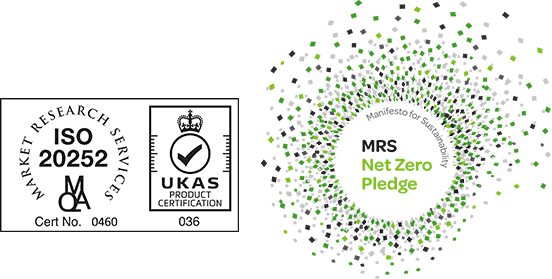At Progressive, we’re always keen to get involved in sustainability-related projects, from our research with organisations like Zero Waste Scotland and TravelKnowHow Scotland to our Net Zero Pledge (committing us to attaining net zero emissions by 2026).
As a chartered sustainability professional Jennifer Decker is Progressive’s ‘go to’ consultant on sustainability with over 30 years’ experience working in business and focusing on sustainability over the last 15 years. Jennifer is a partner owner at QSA Partners, an award-winning B Corporation® helping businesses create and implement circular economy models, and sustainability strategies.
We caught up with Jennifer to ask her some questions about her work and here’s what we found out….
You’ve been working in Sustainability for 15 years now – how did you become involved in the sector?
My journey into sustainability came from my years in retail, in stores and delivering new stores. Retailers often refresh their stores every 5 years, and the amount of waste created was astonishing with the majority of the fixtures and fittings not being reused. The horror of what I saw sparked a career change into sustainability. This started with my tenure at WRAP delivering sustainable construction and latterly leading the Sustainability Clothing Action Plan (SCAP) which brought the UK clothing sector together to make carbon, water and waste reductions on the clothes they put on the UK market.
And what’s kept you in the sector?
My passion for doing the right thing and enabling others to do the same – but not in a tree-huggy way, instead through realistic and practical solutions to reduce their environmental impacts, increase biodiversity and be a good neighbour. There is no better feeling than when someone starts to ‘get’ sustainability after struggling with what to do or where to start.
Are there any types of organisation more likely to seek help in the area of sustainability?
No, I’ve supported many types of organisations from big ones like Heathrow through to SMEs and both commercial businesses and not-for-profit – anyone who needs expert advice from where to start on the journey to refreshing a sustainability strategy. At QSA, we listen to our clients and create the bespoke support they need; it’s not a shopping list.
What types of support are organisations looking for currently?
Everything from carbon, water, and waste reduction strategies, to how to talk to their staff about their sustainability vison.
On circular business models we help businesses identify where to start; research into their customer is critical to this – asking who is your customer and what do they want? You’d be surprised how many businesses cannot answers those questions yet want to dive into launching a new model! We then guide businesses through our proven seven-step circular business model development process.
We are also experienced experts in getting industry to work together to collaborate in a non-competitive way. Recently organisations within the UK fashion and textiles sector recognised the need to collaborate to tackle the potential costly impacts of a future extended producer responsibility (EPR) – which is a tax ensuring producers are responsible for the environmental impact of the products they sell. We worked hard to bring the sector together and secured funding from Innovate UK to create a market-based EPR system that is dynamic, flexible and adapts to the emergence of new technologies, retail systems and consumer behaviour while enabling a step-change in the adoption of circular approaches.
Has the type of support looked for changed over time?
More recently, with financial constraints due to the economic climate, I’ve seen that clients are reluctant to buy a big, expensive strategy development project when they are still confused about their sustainability vision and goals. So, we offer a client workshop to untangle their ideas and draw out their ambition. We co-create the brief and break it down into manageable chucks with clearly defined deliverables. This helps clients work through the process step by step.
QSA partners is a certified B Corporation®, can you tell us more about achieving that accreditation and what it means to you?
Being a B Corporation® means we are recognised and independently certified as a business that properly balances purpose and profit. QSA’s ethos – ‘do the right thing’ – is incredibly important and our work achieves real change and improves our clients’ sustainability performance. It means we can stand alongside other companies who we look up to and we are proud to be part of that community.
Achieving the B Corporation® accreditation is not an easy journey and requires action across a set of criteria: governance, community, environment, and customers. Over the last two years, I’ve been improving our business structure and the way we work for our rescoring later in 2023, and we have an ambition to make a marked score improvement – quite a challenge!
Having worked with organisations from across the UK and beyond how does Scotland compare?
We’ve worked with a variety of Scottish SME businesses to develop and launch a circular business model, including ROCIO (a luxury eco-fashion label) which was awarded the first- Scottish Edge “Circular Economy” award by Zero Waste Scotland. We admired the level of innovation and the positivity to move beyond the ‘take – make – dispose’ model to become circular and make durable products which can go on to have further lives through rental, repair, and resale.
In your experience how can research play a role in supporting organisations towards their sustainability goals?
Research is critical – we work on an evidence-based approach. Back to the ‘who is your customer and what do they want?’ question! This is critical to getting the right circular model for your business.
We’ve just delivered a sustainability engagement strategy/plan for a big infrastructure client to deliver on the goal of ‘everyone sees sustainability as their responsibility, it shines through the decisions we make because it is a core part of our organisations beliefs attitude and values.’ The project was underpinned by research through interviews, surveys and job shadowing on the ‘as is’ state (i.e., what people knew/thought about around sustainability and their roles).
And finally, what made you choose to work with Progressive?
As leaders in our field, we want to work alongside other great companies with a passion for what they do. The Progressive team deliver excellence and real impacts to get to the heart of what people think. We are impact-led and want to see measurable outcomes too.




